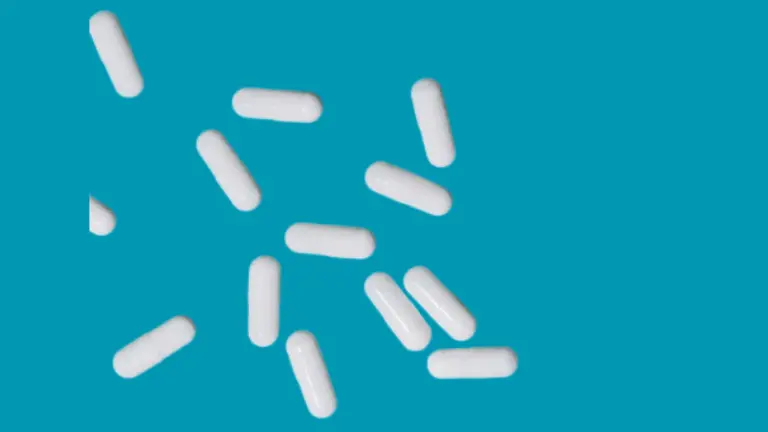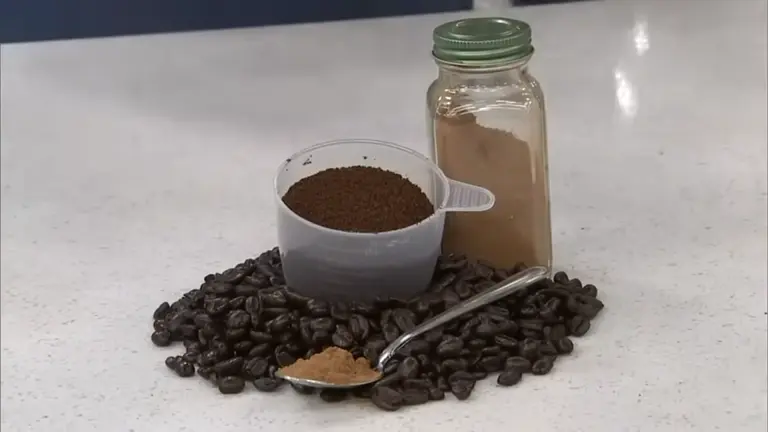Cialis has a shelf life of up to 24 months. Store it in a cool, dry place to maintain its efficacy.
Cialis, a popular medication for erectile dysfunction, requires proper storage to ensure its effectiveness until the expiration date. Users should always check the packaging for the exact expiry date and handle the medication as directed. It’s important to note that the shelf life can be compromised if Cialis is exposed to unfavorable conditions such as high humidity or extreme temperatures.
To safeguard your health and get the best results, only use Cialis before its expiration date and consult a healthcare professional for any concerns about the medication’s condition or storage requirements. Remember to keep Cialis out of reach of children and dispose of any expired or unused tablets according to local regulations.
Cialis Basics
Understanding Cialis shelf life is crucial for anyone using this medication. Cialis, a popular treatment for erectile dysfunction, comes with essential details every user should know. This includes how long it remains effective and safe to use.
Cialis Basics
Cialis is a medicine that helps men with erectile dysfunction. It works by increasing blood flow to the penis, helping to achieve and maintain an erection. Knowing its shelf life ensures you get the full benefit while staying safe.
- Active Ingredient: Tadalafil
- Usage: Treats erectile dysfunction and symptoms of an enlarged prostate
- How to Take: Oral tablet, taken with or without food
- Dosage Forms: Tablets (2.5 mg, 5 mg, 10 mg, 20 mg)
Before taking Cialis, read the label carefully. This ensures you understand the correct dosage and how often to take it. Always follow your doctor’s instructions.
| Shelf Life | Storage Conditions |
|---|---|
| 2 years from manufacture | Keep in a cool, dry place away from sunlight |
After the expiration date, Cialis may not be as effective. It could even be unsafe. Always check the date on the package and never use it past this time.
Remember, Cialis is just one part of a complete treatment plan that may include lifestyle changes and other medications. Always talk to your doctor about the best way to use it.

Credit: www.cheapmedicineshop.com
Shelf Life Explained
Understanding the shelf life of medications like Cialis is crucial. It tells you how long your medicine will stay effective. Let’s dive deep into what shelf life means and why it matters for your health and safety.
Meaning Of Shelf Life
When we talk about shelf life, we refer to the period during which a product remains fit for use. For medications like Cialis, this is the time it can be expected to maintain its identity, strength, quality, and purity when properly stored. Here’s what you need to know:
- Expiration Date: This is the date until which the drug manufacturer can guarantee full potency and safety of the drug.
- Proper Storage: Factors like light, heat, and moisture can affect shelf life. Cialis should be stored at room temperature away from excess heat and moisture (not in the bathroom).
- Original Packaging: Keeping Cialis in its original packaging can help maintain its shelf life.
| Condition | Impact on Shelf Life |
|---|---|
| Exposure to Heat | May decrease shelf life |
| Exposure to Moisture | Can reduce effectiveness |
| Exposure to Light | Potentially harmful to active ingredients |
In summary, the shelf life of Cialis is not just a date. It’s a guarantee of safety and effectiveness. Proper storage is key to ensuring that Cialis works as intended.
Importance Of Shelf Life
The shelf life of a medication like Cialis is more than just a number. It safeguards against potential risks associated with using outdated products. Here’s why it’s important:
- Health Protection: Using Cialis past its shelf life may pose health risks as the medication could be less effective or potentially harmful.
- Cost Efficiency: Knowing the shelf life helps prevent waste by ensuring you use the medication before it expires.
- Regulatory Compliance: Shelf life adherence ensures that pharmacies and healthcare providers meet legal and safety standards.
Being aware of the shelf life helps in making informed decisions about your health. Always check expiration dates and store Cialis correctly to get the best results. Remember, a safe medication leads to a healthier life.
Cialis Shelf Life
Cialis, a medication used to treat erectile dysfunction, comes with a specific shelf life. Understanding this period is crucial for both safety and effectiveness. The shelf life indicates how long the drug maintains its potency and safety for use. Let’s explore the typical duration of Cialis’s shelf life and the factors that may influence it.
Typical Shelf Life Duration
The shelf life of Cialis is an important consideration for anyone prescribed this medication. Generally, Cialis comes with a shelf life of:
- 2 years from the date of manufacture.
- It should be stored in a cool, dry place.
- Packaging should remain intact to preserve its shelf life.
Once the expiration date has passed, Cialis may not be as effective and could potentially be unsafe. To ensure you’re getting the full benefit of the medication, check the expiration date on the package before use. Here’s a simple table detailing the storage conditions and their impact on Cialis:
| Storage Condition | Impact on Shelf Life |
|---|---|
| Room Temperature (15-30°C) | Optimal for maintaining shelf life |
| High Humidity | Could reduce shelf life |
| Direct Sunlight | May degrade active ingredients |
Always store Cialis in its original packaging and keep it out of reach of children.
Factors Affecting Shelf Life
Several factors can impact the shelf life of Cialis. Awareness of these factors helps ensure the medication remains effective up to its expiration date:
- Storage conditions: Temperature, humidity, and light exposure can affect the medication’s stability.
- Packaging integrity: Damaged or compromised packaging can shorten the shelf life.
- Handling: Frequent handling or improper opening of the packaging can introduce contaminants.
It’s important to consider these factors and take appropriate measures to extend the shelf life of Cialis. For example, avoid leaving the medication in areas where temperatures fluctuate, like a car or bathroom. Here’s a breakdown of how these factors can affect Cialis:
| Factor | Impact on Cialis |
|---|---|
| Temperature Fluctuations | Can cause degradation of active ingredients |
| Exposure to Moisture | May lead to clumping or breakdown of pills |
| Exposure to Light | Can decrease potency over time |
To protect the medication, store it in a stable environment and handle it with care, ensuring the shelf life is maximized for your health and safety.

Credit: www.mydrugcenter.com
Storage Conditions
Understanding the shelf life of Cialis is vital for its effectiveness and safety. The shelf life refers to how long a drug maintains its potency and safety. Storage conditions are crucial in ensuring that Cialis remains effective until its expiration date. Proper storage means keeping the medication in conditions that prevent degradation. Let’s explore the ideal temperature and humidity control for storing Cialis.
Ideal Temperature
Temperature plays a key role in the stability of Cialis. The medication should be stored at room temperature, away from heat and direct light. The recommended temperature range is between 15°C and 30°C (59°F and 86°F). Outside of this range, the drug may degrade faster. It’s best to avoid places like cars, bathrooms, or near ovens, where temperatures can fluctuate. Here are key points to remember:
- Avoid storing Cialis in areas where it might freeze.
- Keep the medication away from heat sources.
- Protect Cialis from direct sunlight.
Maintaining the ideal temperature ensures that the active ingredients in Cialis remain stable and effective. Below is a table summarizing the do’s and don’ts of Cialis temperature storage:
| Do’s | Don’ts |
|---|---|
| Store at room temperature | Store in a car |
| Keep between 15°C and 30°C | Store in a bathroom |
| Use a stable environment | Place near an oven |
Humidity Control
Humidity is another factor that can affect Cialis’s shelf life. The medication should be kept in a dry environment. Excess moisture can lead to breakdown and reduced effectiveness. It is important to store Cialis in an area with low humidity. Avoid storing it in bathrooms where showers can increase humidity levels. Here’s what to consider:
- Use original packaging to protect against moisture.
- Consider a dehumidifier in high-humidity areas.
- Do not store near sinks or showers.
By controlling humidity, you can prevent Cialis from absorbing moisture, which can cause it to degrade. The following table provides a quick guide on humidity control for Cialis:
| Do’s | Don’ts |
|---|---|
| Keep in original packaging | Store in the bathroom |
| Use a dry place | Leave near sinks |
| Consider a dehumidifier | Expose to steam |
Expiration Dates
Have you ever wondered about the shelf life of Cialis and its expiration dates? These are important to ensure you’re using effective and safe medication. Let’s dive into how to read these dates and what happens when they pass.
Reading Expiration Labels
Understanding expiration labels on Cialis is crucial for your safety. Here’s a simple guide:
- Look for the date: It’s often on the box or bottle.
- Format: Usually, it’s in MM/YYYY. This means the end of that month.
Why care? Because using Cialis past its expiration can reduce its effectiveness. Manufacturers guarantee its potency and safety only until this date.
| Label Part | What It Means |
|---|---|
| MM/YYYY | Use before this month ends |
| Lot Number | For manufacturer’s use |
Always check these details before use. It ensures your medication works as expected.
What Happens After Expiration?
What exactly happens to Cialis after its expiration date? Here’s the deal:
- Decreased effectiveness: The active ingredient may weaken.
- Safety concerns: While not always harmful, it’s not worth the risk.
Studies have shown that most medications, including Cialis, maintain some effectiveness past their expiration. However, it’s not 100%. You might not get the results you need. Plus, the safety of expired medications is not guaranteed. It’s best to stick to the expiration dates provided.
Remember, taking expired Cialis is a gamble with your health. Always check the label and when in doubt, consult a pharmacist or doctor. They can advise you on whether your medication is still safe to use.
Signs Of Spoilage
Understanding Cialis shelf life is crucial for its safe use. Signs of spoilage help identify if Cialis is still good. These signs include visual indicators and changes in effectiveness. Spotting them ensures you use Cialis safely and effectively.
Visual Indicators
Visual signs are the first clue that Cialis might not be safe to use. Look for these indicators:
- Color change: A shift from its original color suggests spoilage.
- Texture: Cialis should be smooth. Any roughness indicates degradation.
- Integrity of the tablet: Cracks or splits in the tablet are red flags.
It’s also important to check the packaging. Look for:
- Tampering: Any signs of tampering suggest it’s not safe.
- Water damage: This can affect Cialis’s integrity.
A simple table to summarize:
| Indicator | What to Look For |
|---|---|
| Color | Change from original |
| Texture | Roughness |
| Integrity | Cracks or splits |
| Packaging | Tampering or water damage |
Changes In Effectiveness
Effectiveness of Cialis can decrease over time. Signs include:
- Longer onset: Takes more time to work.
- Reduced duration: Effects wear off quicker.
- Decreased intensity: Effects are not as strong.
These changes suggest Cialis may be past its prime. Noticing a pattern is key. If it once worked well but now shows these signs, it might be time to dispose of it. Always consult a healthcare provider if unsure about its effectiveness. They can provide guidance and, if necessary, prescribe a new batch.
Keep a log of:
- How long it takes to feel the effects.
- How long the effects last.
- The intensity of the effects.
This log can help you and your healthcare provider decide on the next steps.
Disposal Guidelines
Many wonder about the shelf life of Cialis, a common medication for erectile dysfunction. It typically remains effective for up to two years from the date of manufacture. But what happens when Cialis expires? It’s vital to dispose of it properly to prevent any potential risks. Let’s explore the best practices for discarding this medication safely.
Safe Disposal Methods
Proper disposal of expired Cialis ensures safety for everyone. Do not throw it in the trash or flush it down the toilet. Instead, follow these steps for secure disposal:
- Medicine Take-Back Programs: The safest option is to find a drug take-back program. These programs collect expired or unused medications for safe disposal.
- Drug Disposal Kiosks: Many pharmacies have disposal kiosks. Drop off your expired Cialis here.
- Follow Local Guidelines: Some areas have specific disposal instructions. Contact local waste management for details.
Consider the following table to determine the best option for discarding Cialis:
| Method | Details | Location |
|---|---|---|
| Take-Back Program | Secure and environmentally safe | Local health departments or pharmacies |
| Disposal Kiosks | Convenient and quick | Participating pharmacies |
| Local Guidelines | Varies by region | Check with local waste management |
Always remove personal information from the medication container before disposal. This step protects your privacy and prevents misuse.
Avoiding Environmental Harm
Discarding Cialis correctly is crucial for the environment. Medications can harm wildlife and contaminate water sources if not disposed of properly. Here’s how to minimize environmental risks:
- Never Flush: Flushing medications can introduce them into waterways. This can harm fish and other aquatic life.
- Don’t Toss in Trash: If thrown in the garbage, Cialis could end up in landfills. It may leach into the ground, affecting soil and water quality.
- Use Disposal Bags: Certain pharmacies provide special bags that neutralize medications. Use these if available.
Remember, these actions help protect our planet:
| Action | Impact |
|---|---|
| Avoid Flushing | Prevents water contamination |
| Proper Disposal | Reduces landfill pollution |
| Use Neutralizing Bags | Safely deactivates medication |
Every small step counts. By following these guidelines, you contribute to a healthier environment and a safer community.
Consulting A Professional
Understanding the shelf life of Cialis is crucial for both safety and effectiveness. This medication, used to treat erectile dysfunction, has a specific duration for optimal use. Seeking guidance from healthcare professionals ensures proper usage and storage. It’s essential to know when to consult a pharmacist or doctor about Cialis.
When To Seek Advice
It’s important to seek professional advice on Cialis for several reasons:
- Expiration: If the expiration date is approaching or has passed, consult a professional.
- Storage concerns: Improper storage might affect the drug’s potency. Ask for storage guidelines.
- Changes in health: New health issues can alter Cialis’s safety for you. Discuss these changes with a professional.
- Unclear instructions: Uncertainty about dosage or timing warrants a professional consultation.
Professionals can provide tailored advice. They consider your health history and current medications. This ensures safe and effective use of Cialis. It’s wise to consult them regularly, not just when problems arise.
Questions To Ask Your Pharmacist
When you talk to your pharmacist about Cialis, clear communication is key. Here are essential questions to ask:
- What is the exact shelf life of my Cialis?
- How should I store it to ensure maximum effectiveness?
- Are there any signs that the medication has degraded?
- Can my other medications affect Cialis’s shelf life or effectiveness?
- What should I do with expired or unused pills?
Pharmacists can help you understand the nuances of Cialis’s shelf life. They guide you on safe disposal of expired medication. Their advice helps you get the full benefit of the medication, avoiding potential risks.

Credit: www.indiamart.com
Conclusion
Understanding Cialis shelf life is crucial for both safety and efficacy. Remember, always check expiration dates and store medication properly. Consult a healthcare professional with any concerns. By taking these steps, you ensure the best possible outcomes with your Cialis treatment.
Stay informed, stay safe.


